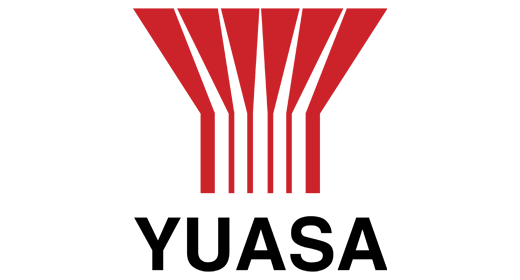The Benefits of Scalable UPS Solutions for Growing Businesses
In the ever-evolving digital realm, businesses globally, especially UK-centric enterprises, are investing more in their digital resources and assets. As this transition towards a more technology-heavy framework accelerates, businesses must prioritise safeguarding their critical systems. One way that this protection can be assured is through the adoption of scalable Uninterruptible Power Supply (UPS) solutions.
As we delve into the intricacies of UPS solutions for growing UK businesses, we will explore the wide array of benefits that these systems bring. From protection against power outages and voltage fluctuations to increased equipment lifespan and reduced downtime, businesses can experience a multitude of advantages. We will also cater to those facing the decision between modular vs traditional UPS systems, emphasising the flexibility, scalability, and reliability of ones.
With the significant shift towards cloud computing and the rise of scalable data centres, the role and importance of UPS systems are becoming more prominent. You'll get a comprehensive understanding of their industrial applications and how a business in the UK can maximise its efficiency using these powerful tools.
As we navigate through this enlightening journey into the world of UPS systems, let's start by first understanding the landscape of the UPS market and its projections.
UPS Market Overview and Projections
The Uninterruptible Power Supply (UPS) market is a dynamic, growing landscape, expected to witness substantial growth in the coming years. Various market segments, including industrial, data centre, and regional markets such as the UK and Europe, offer fascinating perspectives. This constant evolution is powered by technological advancements, higher demand for reliable power supply solutions, and the digital transformation sweeping industries globally.
Global Industrial UPS Market
The global market for Industrial UPS solutions is expected to flourish in the next decade. Given the complexity and economic implications of power interruptions in industries, maintaining continuous power has become paramount. The constant demand for efficient and reliable power supply solutions has led to exciting growth in this sector. Let's delve into some key insights:
- It's predicted that the Industrial UPS market will reach an impressive USD 4.5B by 2030.
- This signifies a significant Compound Annual Growth Rate (CAGR) of 8.2%.
These figures indicate the unravelling of an enormous potential for the global industrial UPS market, laying a path for numerous opportunities in the pipeline.
Data Centre UPS Market
Meanwhile, the Data Centre UPS market's growth trajectory is another story worth telling. Power stability is a non-negotiable necessity in data centres, causing the UPS market to see substantial growth in this sector. Our figures underline the continuous force behind this market's expansion:
- The Data Centre UPS market was valued at an already impressive USD 5.12B in 2021.
- The predicted CAGR of 6.6% during 2023-2030 indicates the healthy growth anticipated in this sector.
The rise of digital enterprises and increased digitisation underlines the importance and impact these figures will have on the data centre UPS market.
UK & Europe UPS Market
Focusing on a regional perspective, the UPS market in the UK and Europe holds its unique position. Amidst the intensified demand for energy-efficient power solutions and increased digitalisation, these markets are evolving and adapting. Here are some key observations:
- The United Kingdom UPS Systems Market is anticipated to grow at a 1.6% CAGR during 2022-2028.
- Meanwhile, the Europe UPS Market size, valued at USD 20.5B in 2022, is predicted to swell to USD 29.17B by 2023.
The figures paint a picture of stable and promising growth in these regions. Watchful eyes are monitoring both these markets, witnessing the unfolding of substantial opportunities for businesses.
By tracking these trends, we can observe the clear intersections between technology, power supply needs, and market growth. The global industrial, data centre and UK & European markets are all equally crucial contributors to the overall UPS market's evolution. Investors, enthusiasts, and industry leaders, you better buckle up, for the UPS market ride offers exciting opportunities and substantial growth potential.

Benefits of UPS Systems
Navigating the mysterious and sometimes unpredictable world of power supply can be a daunting experience. With unforeseen power outages, voltage fluctuations, and equipment failure lurking around the corner, one must be prepared. This is where Uninterrupted Power Supply (UPS) systems come in. These handy devices offer many substantial benefits to users, ensuring that the potential problems of power supply don't deter your plans.
Protection Against Power Outages and Voltage Fluctuations
First, on our list of benefits is the protection against power outages and voltage fluctuations that UPS systems offer. Let's paint a picture:
- You're in the middle of finalising an important project when suddenly, darkness – a power outage. Or
- You've just started operating a delicate piece of machinery, and a sudden surge in voltage occurs, threatening to fry your equipment's circuits.
In both scenarios, a UPS system would prove useful. It effortlessly switches to battery mode, allowing your operations to continue even when the primary power supply is compromised. In the case of voltage fluctuations, a UPS system will regulate the power supply, preventing potential damage to your equipment.
Increased Equipment Lifespan
UPS systems don't just provide power during outages and protect against fluctuations; they also significantly enhance the lifespan of your equipment. By ensuring that the supply of electricity to their connected devices is smooth and consistent, UPS systems can help to prevent performance issues that could shorten the lifespan of these devices.
Let's look at this in greater detail:
- Equipment that's subjected to constant voltage fluctuations tends to wear out and have a shorter lifespan.
- A UPS system, through its voltage regulation capability, shields your equipment from such fluctuations, thereby extending its operational life.
Reduced Downtime
Reducing downtime is a benefit that we all appreciate. Think about it:
- Would you rather lose countless work hours due to unpredictable power outages or would you rather have a system in place that offsets such outages, allowing your work to continue unaffected?
- Do you prefer spending time troubleshooting and replacing equipment damaged by voltage spikes, or would you like a precautionary shield against such spikes?
In both cases, a UPS system comes to the rescue, minimising downtime significantly. With a UPS system, there's not a second wasted – your operations continue smoothly, even in the face of occasional power hitches.
In essence, investing in a UPS system equates to investing in efficient, ongoing operations and long-lasting equipment. With so many benefits on offer, a UPS system could well be the power supply guardian you never knew you needed.
Modular vs Traditional UPS Systems
As power solutions specialists, we frequently find ourselves facing this pivotal question: Modular or traditional UPS systems, which one should we recommend? Both types have their merits and demerits, and the choice primarily depends on our customers' specific needs.
For context, a UPS (Uninterruptible Power Supply) system is a device that provides emergency power in case of sudden electricity failures. These systems are paramount for enterprises that cannot afford prolonged power interruptions, like data centres, hospitals, and factories. Let's dive deeper into the distinct features of these two UPS types and help you make an informed decision.
Flexibility, Scalability, and Reliability
Undeniably, modular UPS systems have gained much appreciation for their flexibility, scalability, and reliability. Unlike their traditional counterparts, modular UPS systems comprise multiple smaller units that work in harmony. This design allows for high availability and efficiency, bringing multiple advantages to the table:
- High Availability: Modular UPS systems can handle failure better than traditional systems. Even if one module fails, the overall system can continue to operate smoothly. This built-in redundancy makes it the go-to choice of businesses that require uninterrupted power flow.
- Higher Efficiency: These systems are well-known for their ability to scale as per the load requirements. When the load is less, fewer modules can run, ensuring optimal efficiency at different loads. This avoids energy wastage, which is usually the case with traditional UPS systems that run at full capacity all the time.
- Enhanced Security and Simplified Repairs: The individual modules come with self-contained components, making fault detection and rectification a breeze. Traditional systems, on the other hand, may require total shutdown for maintenance or repair, thus disrupting operations.
It's essential to note that modular systems aren't designed for all environments. They thrive in controlled and predictable settings, but in rugged or harsh environments, the traditional UPS is the preferred choice.
Reduced Floor Space and Cost-Effective
One of the significant advantages of modular UPS systems is their compactness. They consume less floor space than traditional systems. Plus, the installation process is less complicated and cumbersome compared with traditional UPS systems. This not only adds to the aesthetics of your infrastructure but also helps in making the most of your work environment.
Furthermore, with modular systems, operators only need to invest in the capacity they need instantly, a serious cost benefit. As the load requirement increases, they can add more modules without having to replace the entire system. Traditional UPS systems, conversely, often require significant upfront investment and future upgrades can be more costly and time-consuming.
Enhanced Scalability and Reliability with Distributed Batteries
Modular UPS systems come with distributed batteries that further enhance scalability and reliability. Remember, a UPS system is only as strong as its weakest component. Distributed batteries allow each module to function independently, thus not affecting the entire system even if one module's battery fails.
On the flip side, traditional UPS systems generally have a single, centralised battery system. If this battery fails, it could potentially bring down the whole system, causing significant downtime.
Whether your business should opt for a modular or traditional UPS system depends largely on your unique power needs, long-term operational plans, and budget considerations. At the heart of it all, you need reliable, efficient, and cost-effective power solutions that will support your business processes seamlessly. Our team has the expertise to guide you through this crucial decision-making process and ensure that your UPS system is well-equipped to meet your current and future needs.
Remember, power is an investment in your business's future performance and growth. Making an informed choice here can be the difference between widespread disruption and seamless operations.
Scalable Data Centres and Modular UPS Systems
The future of data centres is rapidly changing, paving the way for more sustainable and efficient operations. In particular, we're seeing a rise in the popularity of scalable data centres that leverage modular UPS systems.
Let's first explore why scalability matters in data centres. Scalability is all about future growth; a scalable data centre is one that's designed to grow effortlessly along with your company's infrastructure needs. As you strive to meet the increasing demands of your business and customers, scalability becomes a key performance factor.
- Flexibility: A scalable data centre offers flexibility for companies to meet evolving market needs.
- Efficiency: Scalable data centres allow businesses to optimise resource use and reduce operational costs.
- Availability: Scalability helps ensure high uptime, vital for any mission-critical applications.
Now, what role do modular UPS systems play in this scenario? UPS stands for 'Uninterruptible Power Supply," and as its name suggests, these systems provide a continuous power supply to your data centre. Traditionally, UPS systems were monolithic, but with modern innovations, we now benefit from modular UPS, a critical component which enhances data centre scalability.
Some attributes of modular UPS systems include:
- Flexibility: Modular UPS systems offer power when required, adapting seamlessly to the constantly changing load requirements of data centres.
- Space-Efficient: A modular UPS minimises space usage, a key advantage in data centres where space is at a premium.
- Energy-Efficient: Modular UPS technology improves energy efficiency by operating under optimal load conditions.
Modular UPS systems have one more significant advantage. They're designed to grow in capacity and power as the data centre expands. This mitigates the need for major infrastructure modifications every time you need to expand your data centre—saving both time and investment and aligning perfectly with the scalability objective.
So the crux of the matter is that modular UPS systems are transforming the way we manage scalable data centres. They make it possible to quickly adapt to changes and foster a future-proof business model while achieving significant gains in electrical efficiency.
As we stand at the precipice of immense digital growth, aligning your data centre with modular UPS systems is a strategy we highly recommend. It paves the path towards a more sustainable, efficient, and scalable future—helping you remain agile, competitive, and primed for whatever the digital future holds.
Cloud Computing and UPS Systems
The rise of cloud computing is revolutionising how businesses operate worldwide. Harnessing the power of massive computing resources upon demand has made data storage, processing, and transmission more manageable than ever. However, an essential yet often overlooked component contributing to this seamless operation of cloud computing is Uninterruptible Power Supply (UPS) systems. Essentially, these UPS systems act as a lifeguard, ensuring cloud computing services' continuous and uninterrupted functioning.
At the heart of cloud computing, the objective is unfaltering access to computing services anytime, anywhere across the globe. Imagine a scenario where your enterprise is accessing data from the cloud and suddenly, there's a power outage. The blackout would not only impede the data retrieval process but also might endanger data integrity.
In such circumstances, UPS systems spring into action. Their role is two-pronged.
- First, they provide instant backup power, thus averting immediate equipment shutdown that can lead to both loss of data and potential hardware damage.
- Secondly, they offer an opportunity for the administrator to initiate proper shutdown procedures or switch to alternate power sources for sustained operations, avoiding unexpected interruptions in cloud services.
Thus, an effective UPS system integrates reliability, efficiency, and flexibility, making it a critical instrument in the realm of cloud computing.
Cloud computing relies on UPS systems for uninterrupted power supply, enabling businesses to access computing services over the Internet.
These UPS systems should not be considered an optional accessory but rather a core requirement for any successful and dependable cloud computing architecture. They are the unsung heroes, ensuring your business remains online and functioning regardless of the raw power available. To put it simply, when it comes to cloud computing, the importance of a reliable UPS system cannot be overstated.
Therefore, as we usher in an era where cloud computing becomes the norm rather than an exception, the need for sturdy, reliable UPS systems will only grow. In an increasingly digital and connected world, can your business afford to overlook this crucial aspect of cloud computing operations? Our contention would be not! It's high time to recognise and accredit these silent facilitators of continuous cloud connectivity.
Industrial Applications of UPS Systems
Uninterrupted Power Supply (UPS) systems are often the unsung heroes in many industries. Without a doubt, they ensure the continuity of power supply, safeguarding sensitive equipment from potentially damaging power quality events. These UPS systems are bold, resilient, and essential for ensuring seamless industrial operations. They epitomise the adage 'power at no interruption,' and we're excited about their potential for future industrial applications. It's an electrifying time to be in this industry!
Conclusion
In summarising our discussion, we can affirm the crucial role scalable UPS systems play in supporting growing businesses, particularly in an era where data and power are pivotal assets. With the unpredictable nature of power outage events and the ever-increasing reliance on technology in today's globalised world, the need for high-performing, scalable UPS solutions has never been more important. Secure Power recognises this trend and remains committed to delivering industry-leading UPS systems, providing the reliability, efficiency, and peace of mind your business deserves.
Our expert team at Secure Power not only offers top-tier, scalable UPS solutions but also provides regular maintenance services – ensuring the continual splendid performance of your installed system. By choosing Secure Power as your UPS partner, you're investing in reliable and efficient power for your business. We invite you to explore our wide range of products and services that are specially designed to meet your unique power needs. Together, we can make every millisecond count and ensure your business runs smoothly, even in the most challenging circumstances. As we always say at Secure Power: Your Power is Our Priority.
Frequently Asked Questions
-
What is a scalable uninterruptible power supply (UPS) solution?
A scalable uninterruptible power supply (UPS) solution is a power backup system that can be easily expanded or upgraded to meet the increasing power needs of a growing business. It allows businesses to add more power capacity without major disruptions or infrastructure changes.
-
Why is scalability important for UPS solutions in growing UK businesses?
Scalability is crucial for UPS solutions in growing UK businesses because it allows them to adapt to changing power demands. As businesses expand and add more equipment or facilities, a scalable UPS ensures a reliable power supply and prevents downtime or data loss due to power disruptions.
-
What are the benefits of using scalable UPS solutions for UK businesses?
The benefits of using scalable UPS solutions for UK businesses include 1. Flexibility to add more power capacity as needed, 2. Cost-savings by avoiding over-investment in initial UPS capacity, 3. Improved business continuity and reduced risk of downtime, 4. Easy maintenance and reduced service interruptions, and 5. Future-proofing for potential growth.
-
How do scalable UPS solutions contribute to business continuity?
Scalable UPS solutions contribute to business continuity by ensuring uninterrupted power supply during power outages or fluctuations. They provide a reliable backup power source, allowing businesses to continue operations, protect critical data, and prevent financial losses associated with downtime or equipment damage.
-
What factors should businesses consider when choosing a scalable UPS solution?
When choosing a scalable UPS solution, businesses should consider factors such as power capacity requirements, expandability options, future growth projections, scalability costs, efficiency ratings, reliability, and compatibility with existing infrastructure. Consulting with a UPS specialist can help determine the most suitable solution for specific business needs.














